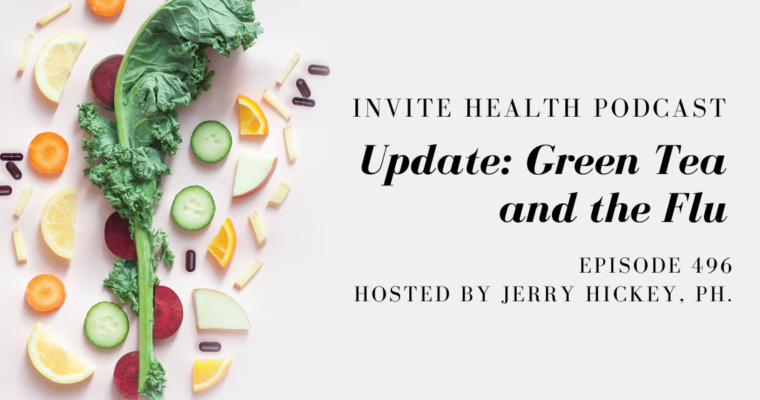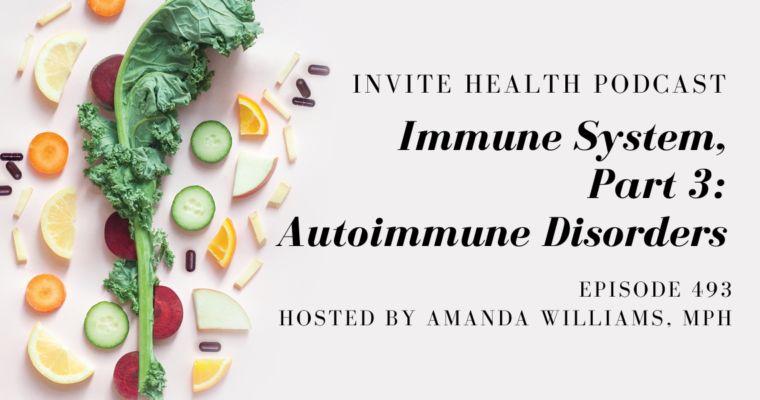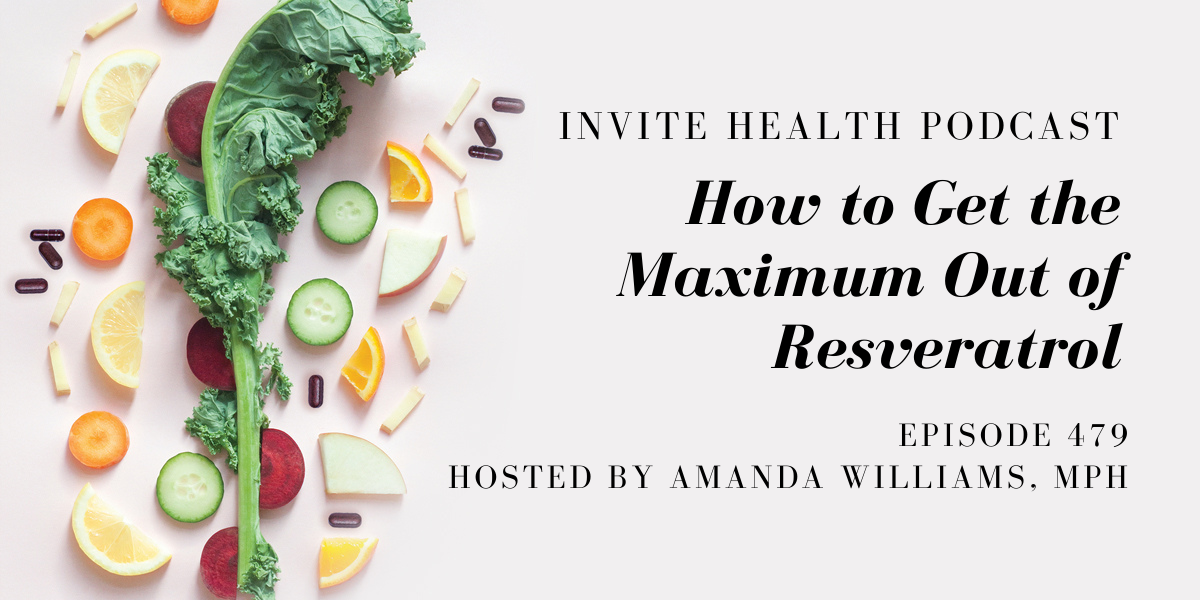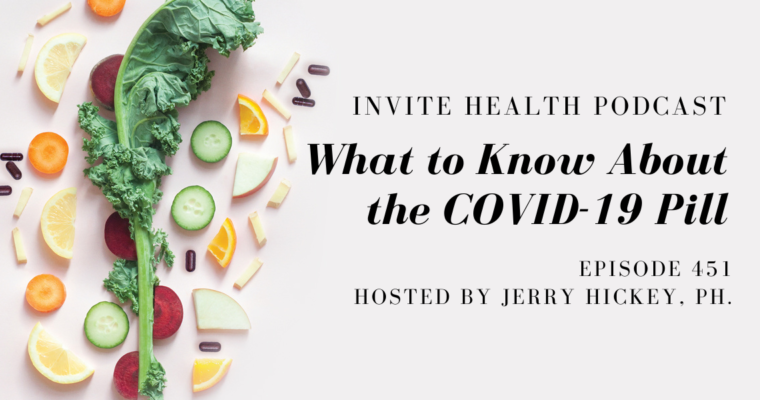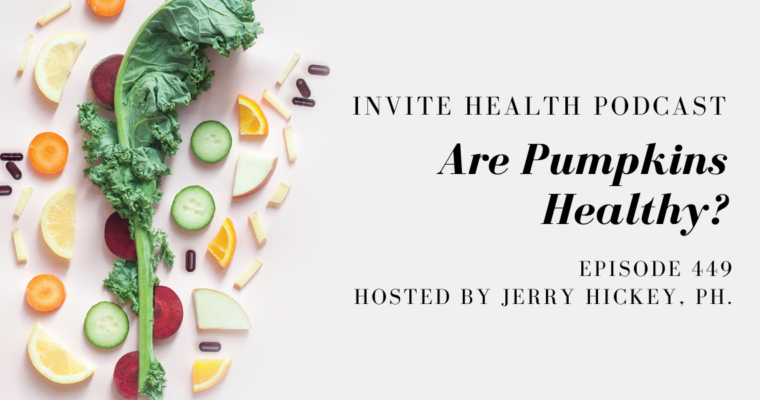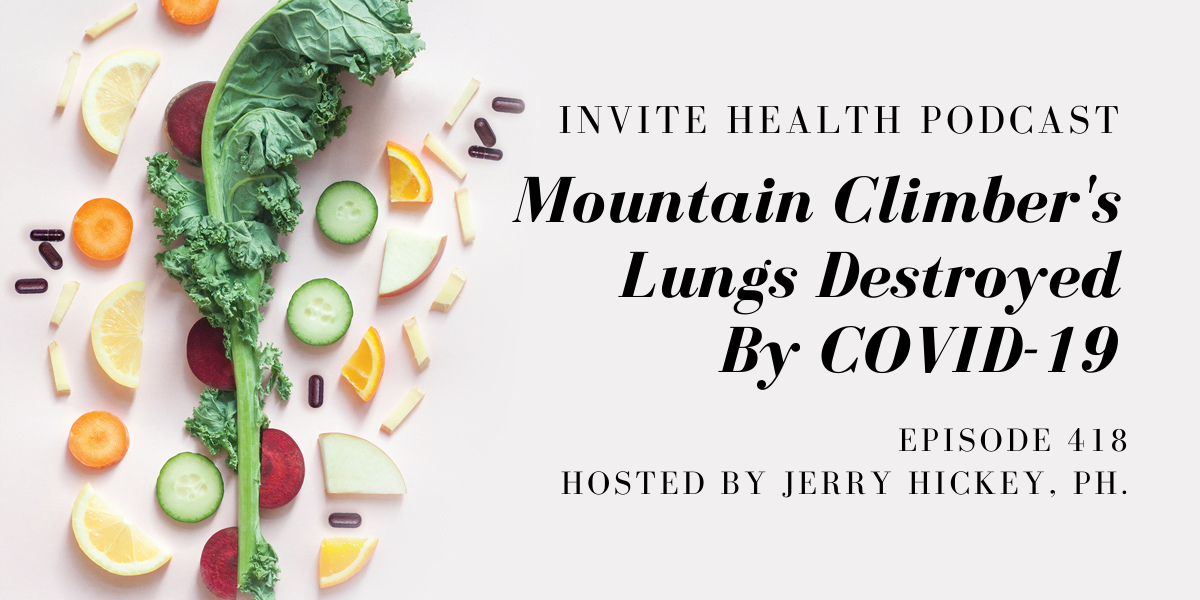resveratrol
Subscribe Today!
Please see below for a complete transcript of this episode.
Getting the Maximum Out of Resveratrol – InViteⓇ Health Podcast, Episode 479
Hosted by Amanda Williams, MPH
*Intro music*
InVite Health Podcast Intro: Welcome to the InViteⓇ Health Podcast, where our degreed healthcare professionals are excited to offer you the most important health and wellness information you need to make informed choices about your health. You can learn more about the products discussed in each of these episodes and all that InVite Health has to offer at www.invitehealth.com/podcast. First time customers can use promo code PODCAST at checkout for an additional 15% off your first purchase. Let’s get started!
*Intro music*
Amanda Williams, MPH: Today I want to talk about the many different benefits that go along with resveratrol. I am Amanda Williams, MD, MPH and let’s get right to it.†
Resveratrol has always been kind of touted as that anti-aging supplement and rightfully so. I mean, don’t get me wrong. We know that resveratrol does this really great job of the activation of sirtuin and sirtuin 1 in particular. It’s through that that allows for cellular longevity, so this we know. We definitely can see why resveratrol has been touted as kind of this, in a sense, this miracle supplement.†
But it’s coming from nature and it has all of these great benefits. We know it’s a very powerful antioxidant and we certainly can see how it’s been studied across the spectrum when it comes to cardiovascular health, when it comes to cognitive health and so much of the way in which resveratrol is working is when we think about inflammaging. It’s that chronic inflammation that leads to that accelerated aging. We know that because resveratrol can actually activate and promote that sirtuin activity… remember that sirtuin is helping with that cellular longevity, sirtuin 1 in particular. So we know that the more we can activate SIRT1, the more that we can promote the repair and longevity of our cells.†
HOW DIFFERENT TYPES OF INFLAMMATION IMPACT YOUR BODY – INVITE HEALTH PODCAST, EPISODE 314. Listen Now>>
Inflammation itself is promoting this cellular proliferation and angiogenesis. This is why we find that resveratrol can actually inhibit the activity of many different inflammatory enzymes, including things like NF-kappa beta. If we can downregulate that, we know at the same time, we’re going to be bolstering up our immune system. This is where you, once again, have to be able to draw that connection.†
Now, initially, outside of the anti-aging of resveratrol and the studies that focused on that, much of the research was done on the cardiovascular benefits and being able to see just how it was that the resveratrol, that trans-resveratrol, can actually help to support the cardiovascular system by targeting inflammation and the viscosity of the blood, supporting the endothelial cells, so it’s very, very impressive.†
When it comes to blood pressure, I’ve talked about this study that they did where they actually used resveratrol soaked… so they take cardiac stents, so someone has to go in to have a vessel opened up because it’s clogged up and they put a stent in. They did a study in Louisiana where they actually soaked the stents in resveratrol and then they put the stent into the cardiac patient and they found that they did much better in terms of healing post-surgery and those markers for inflammation were coming down much more rapidly. We know that resveratrol packs a punch when it comes to targeting that inflammation.†
Now, this is the key takeaway: trans-resveratrol is what is yielding all of that benefit. When we look at the components coming from grape, for example, and resveratrol is called a stilbenoid. This is a compound that’s produced by these different plants, so we can look at Japanese knotweed, we can look at grapes, and we know that the resveratrol is predominately found in the skin of those grapes and blueberries, raspberries. That’s where we’re predominately being able to source the resveratrol. But it is a specific type. It is the trans-resveratrol that is what is yielding that benefit.†

Now, the initial studies done with resveratrol were showing that when someone took in roughly 20mg of trans-resveratrol, that it was this amount that would start to potentiate that benefit when we think of sirtuin activation, so for that cellular longevity. But then when we get deeper into the science and we look at the cardiovascular benefits, then we see that the trans-resveratrol amount needs to be much higher. So, we recognize 100mg is probably where we need to be.
Well let me tell you about the Resveratrol Max. This has over 200mg of trans-resveratrol in it. That’s a huge amount of trans-resveratrol. And understanding the science of the trans-resveratrol and how this is the biologically active form of that powerful compound that is derived from those fruits, that this is what is yielding all of that benefit. And this is why the research really took off, because they said, “If we use a higher amount of this trans-resveratrol…” We know that 20mg is what’s beneficial just to support basic cellular health, but if we increase that amount, now we’re looking at improvements to memory. We’re looking at improvements to insulin sensitivity in diabetics, better glucose control. We’re looking at how that trans-resveratrol is really optimizing the health of cardiac patients. And study after study continues to show this.†
When I look at much of the science behind the resveratrol, it is really very broad. When we think about the immune system, this is where that trans-resveratrol, to me, is oftentimes overlooked because we know that the resveratrol has this finite ability to do so much when it comes to, once again, fending off oxidative stress. The more we can fend off oxidative stress, the more we’re supporting the immune system. We also have now recognized that the trans-resveratrol, that particular compound, has a unique ability to target specific viruses and bacteria. And so, a lot of scientific research right now is highly focused on that uniqueness of resveratrol when it comes to the way that the immune system can utilize it for its benefit. So the antiviral properties that go along with resveratrol have been shown and we are seeing more and more of these studies coming out.†
In the Biochemical Translational Journal, they looked at how resveratrol has been shown over the course of many years now, and this was probably over a decade ago that this study came out… We know that it has this capacity to target and prevent many different conditions, including cardiovascular disease and cancers, they mention. But they also recognize that it has this unique ability to control fungal, bacterial and viral infections. This is why you continue to see different studies.†
I mean, there’s even been studies in this current situation with COVID-19 where they have been studying resveratrol to see if resveratrol had any capacity to inhibit that SARS-CoV-2 replication. Remember, with viruses, that’s what we’re trying to do. We’re trying to stop that replication because viruses are very tough things to actually eliminate or eradicate, so we’re always trying to stop the replication. That is the goal. And so, seeing how resveratrol can actually be incredibly targeted to specified viruses… I mean, we’re talking different herpes viruses, so in that herpes simplex virus family… looking at Epstein-Barr. There’s a lot of different ways in which resveratrol has shown to exhibit these inhibitory properties against a whole wide range of different viruses. And in the Nature journal they talked about this and one of the ways that they were looking at it was through the deactivation of one component of these particular viruses.†
COVID-19 LINGERING EFFECTS ON THE BRAIN – INVITE HEALTH PODCAST, EPISODE 273. Listen Now>>
This is why, once again, I wanted to talk about resveratrol in this setting because many times we think, “Resveratrol, anti-aging,” or “Resveratrol, cardiovascular health.” But we now see that resveratrol plays a really profound role when it comes to brain health. And once again, they’ve done really interesting studies with functional MRIs and seen the difference when they gave individuals trans-resveratrol. Then they looked at the brain and they said, “Wow, look at the difference in this.” And part of that was the ability to target glycation, oxidative stress, helping to support better blood flow, once again, into the brain. And that was in the Journal of Neurosciences back in 2014, where they talked about this. They took a group of diabetics, which they knew already had a diminished cardiovascular circulatory system and had a greater risk of damage or atrophy in the brain because of excessive glycation. Then they found that the resveratrol actually improved their memory and helped to enhance insulin sensitivity and regulate that glycation from doing further damage.†
We have different resveratrols available at InViteⓇ Health, but the Resveratrol Max, this is the power punch of all resveratrols. You will be definitely hard-pressed to try and find another resveratrol on the market that can stand up to the Resveratrol Max. This is by far one of the most potent forms of trans-resveratrol that you can get your hands on. And remember, we’ve got a lot of pharmaceutical companies out there that are really doing their darnedest to try and figure out how to create a synthetic version of resveratrol for their own benefits because they realize just how powerful trans-resveratrol is and all of the many ways in which trans-resveratrol can make an impact on human health. So we’re talking immune health, cardiovascular health, neuronal health, so many different utilizations. No wonder why they are trying to manipulate or make this in a lab synthetic setting. But luckily for you, you can get the real deal. You can get the actual trans-resveratrol in the highest amount by utilizing the Resveratrol Max formulation.†
So, I want to thank you so much for tuning into the InViteⓇ Health Podcast. Remember, you can find all of our episodes for free wherever you listen to podcasts or by visiting invitehealth.com/podcast. Now, do make sure that you subscribe and you leave us a review. You can follow us on Facebook, Twitter and Instagram at @invitehealth and we will see you next time for another episode of the InViteⓇ Health Podcast.†
*Exit music*


